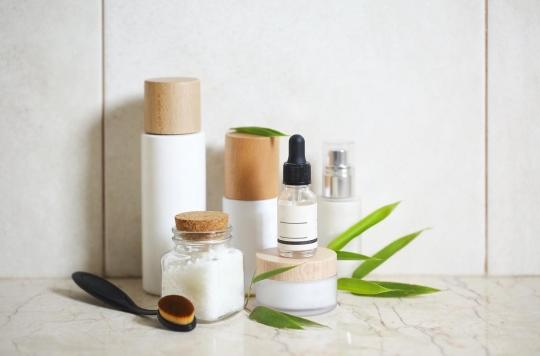Many large cosmetic groups have given up using talcum powder in their beauty products. In question, the multiplication of evidence of a link between this powder and the development of cancer.

- The mineral used to make talcum powder, used in cosmetics, is usually found in the same rock as asbestos which is carcinogenic.
- Several cosmetic groups use alternatives, such as cornstarch.
- A total of 139,350 tons of talc are expected to be consumed this year worldwide.
As early as 2013, numerous complaints were filed against the pharmaceutical company Johnson & Johnson, accused of selling products containing asbestos. In 2016, the company had to pay 55 million dollars for its talc which allegedly caused ovarian cancer in a consumer. The mineral used to make this powder is usually found in the same rock as asbestos, which is a carcinogen causing around 1,100 new cases of cancer per year. Last month, the American company announced that it was withdrawing its baby powder from sale in the United States and Canada.
Cornstarch as a substitute
Lawsuits are also underway against other talc manufacturers, such as Revlon, Chanel and Avon. Reuters echoes a complaint filed by a California woman who has contracted mesothelioma, a rare form of cancer whose only established cause so far is exposure to asbestos from her cosmetics, in particular in a talc that Chanel withdrew from sale in 2016. On the side of the American cosmetics company Revlon, the use of talc has been withdrawn from its body products.
Other groups have opted for the strategy of finding alternatives to talc. “Well-known partial alternatives exist, and we continue to explore and consider the best performing ones.”, added the L’Oréal spokeswoman to Reuters. In the meantime, the French industrial group requires its suppliers to certify that the talc is asbestos-free, in addition to carrying out internal tests, she said. In Germany, the Beiersdorf group took the bet on cornstarch for its Nivea baby powder. Bausch Health, which is involved in 165 lawsuits, has changed the formula of its Shower to Shower powder”to adapt to market trends, not for security reasons”, a representative of the Canadian company told Reuters.
139,500 tonnes of talc consumed this year
Despite the lawsuits and the link that appears between talc and the development of cancer in consumers, some groups do not plan to stop using this product. The French pharmaceutical group Sanofi contests “vigorously” the legal proceedings initiated against him and which notably target his Gold Blond powder. The Avon group has refused to comment on the 128 lawsuits brought against it and which involve its talc-based products. In total, 139,350 tons of talc should be consumed this year worldwide, according to data from Euromonitor International. In the United States, the federal health authority (the Food and Drug Administration) is considering establishing a specific testing standard for asbestos, while Canada plans to restrict or even ban the use of talc in certain products from next year.
.
















